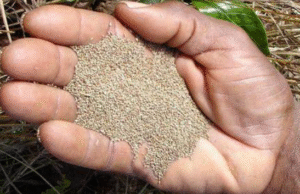As reviewed through the eyes of an unmarried, Igbo woman
You must have read quite a few reviews on this book. Which means you know the storyline is female-centred. So let me spare you. It is a book which kept me up for two consecutive nights, few books achieve that feat.
Now come along, for this unconventional review through my lived experiences. I assure you, this is about the best review you would get so far.
I share a touchpoint with all four characters in this book.
-
- Kadiatou: West African who grew up in a Muslim-dominated North. Self-effacing. Single parent immigrant with a young child.
-
- Unmarried Igbo woman with a good career progression in her 40s like Zikora & Omelogor.
-
- Zikora: A puritan single mother who can relate to the Kwame scenario.
-
- Omelogor: a banking background including Treasury experience with access to the corridors of power. I saw how the money game is played in there. Her culture shock in America. Friendship in Abuja with Hauwa and the exclusive Northern world. + deep friendships
-
- Chia: Travel writer. Idealistic romantic views and a naïve heart.
THE REVIEW:
Based on the angle of topics the author covered;
Societal Pressure on Females: Chiamaka, Omelogor and Zikora are all well educated, travelled and successful females holding down their fortes. Although, through the lens of society and families, they fall short by being financially independent, unmarried Igbo females in their 40s.
That wife who sparks envy: Chia’s mom was an archetype of the privileged Anambra wife. Stunningly Beautiful. Moneyed & doting husband. Uppity. Stay home mom who simply ate her husband’s money. That woman who sparks envy from other women as due to no fault of hers, she is blessed with much. Yet people wanted humility from her to prove that no woman deserved so much. She was also that mother, who gradually descends from her exclusive list of the type of man you should marry, to encouraging you to settle for any available man.
Shifting Values: The family members who now encourage you to adopt, try IVF or have a child if marriage is not coming. Backtrack 10, 20 years ago and those same people would have blatantly rejected any such option. This shows that with time, our views evolve. Also, the things we think we stand for today, are mostly self-serving.
Fragile Female Self-Esteem: You are lucky if you have not been in a relationship with a Darnell. The user who is intimidated by you yet likes the idea of your status. And in retaliation he attempts to make himself feel better by diminishing you. Yet you stay, make excuses for him then try to protect him from your circles. We also see it play out in how Binta, Kadiatou’s sister, kept lying to protect her city boyfriend from Kadiatou’s prying questions. The burden of a societal expectation to downplay yourself for a man to shine.
Self-Sabotage: The conflict which comes with a low self esteem. A Darnell treats you like crap and you indulge him while wishing for better. Then a Chuka treats you like a queen. Still, you dump Chuka for a myth. Who else can relate?
Intricacy of Female Friendships: the deep bonds, pettiness and insecurities of female friendships show up all through the book.
Poverty & Widowhood: Kadiatou’s father’s death changed the trajectory of their lives for the worse. Her mother’s experience with in-laws and subsequently, Kadiatou herself when her husband died, are real experiences in African culture.
Culture Shock: Omelogor’s experience in America which led to depression is a vivid portrayal of what happens to the average middle-class immigrant.
Polygamy: Zikora’s father taking a second wife because his wife could only birth Zikora, a daughter. In Igbo land, a man who dies without a son has no legacy. So, in spite of the fact that a female has no Y-chromosomes, she is still held responsible for producing a male child.
The book touches on sensitive topics like Female Genital Mutilation, Rape, Shades of Racism, Betrayal, Nepotism, Single Parenting, Genocides citing the Nigerian-Biafran war, Operation Parsley of the Haiti-Dominicans, the Kano riots, the Nazi SS refugees in Argentina.
Furthermore, the hypocrisy of the West was depicted in; the replay of the 2011 rape scandal involving the IMF chief, Dominique Strauss-Khan and Nafissatou Diallo, a hotel cleaner. In addition to Operation Persil — The 1960s French government covert operation in Guinea to arm twist Sekou Toure into submission. Also, in Amadou, the black immigrant jailed for selling drugs and thrown into a faraway jail in Virginia.
And yes, Kadiatou’s fonio — called Acha in Northern Nigeria — left my mouth watering as it took me back to my childhood days in the Plateau.
Have you read it? Share what stuck with you.

Discover more from amarannajiwrites
Subscribe to get the latest posts sent to your email.

